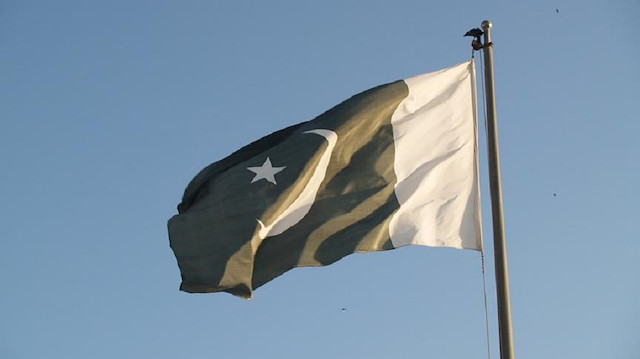
Financial Action Task Force (FATF) set to decide Islamabad's fate in ongoing Paris meeting
Riding on crucial support from Turkey, China, and Malaysia, Pakistan's anxious eye is on an ongoing meeting of the Financial Action Task Force -- a global money-laundering watchdog -- in Paris, which is set to decide on whether or not to remove Islamabad from its gray list.
Islamabad has been on the global money-laundering watchdog's radar since June 2018, when it was placed on its gray list for terrorist financing and money laundering risks after an assessment of the country's financial system and security mechanism.
The South Asian nuclear nation has since twice escaped being placed on the watchdog's financial crime blacklist with the support of Ankara, Beijing and Kuala Lumpur.
Turkish President Recep Tayyip Erdogan, while addressing a joint sitting of the Pakistani parliament last Friday, assured his country's continued support for Islamabad in its bid to stay off the FATF blacklist at the Paris meeting.
In recent months, Islamabad has taken some major steps under the plan, under which the country will allow no foreign currency transactions without a national tax number and ban currency changes of up to $500 in the open currency market without the sides submitting a copy of their identification documents.
In addition to that, Pakistan has also proscribed several militant groups and seized their assets, including Jamaat ud Dawah, and Jaish-e-Mohammad (JeM) -- the groups blamed for several terrorist attacks such as the 2009 deadly Mumbai attacks killing over 150 people.
An anti-terrorism court earlier this month sentenced Hafiz Mohammad Saeed, the chief of the Jamaat ud Dawah (JuD), to 11 years in jail in two terror-financing cases -- a development widely seen as an attempt to woo FATF members.
Islamabad is engaged in backdoor diplomacy with FATF member countries to get off the gray list or at least avoid being placed on the blacklist, a senior foreign ministry official told Anadolu Agency, wishing not to be named.
"We are in constant touch with Turkey, China, Malaysia, and Saudi Arabia to use their good offices to help Islamabad move off the gray list," the official said, claiming that President Erdogan was personally taking interest in the issue without providing further details.
Najmuddin Shaikh, a former foreign secretary, however, feels that Islamabad will continue to be on the gray list despite progress on the 27-point agenda.
"The blacklisting of Islamabad is out of the question," Shaikh, who served as foreign secretary from 1994 to 1997, told Anadolu Agency. He added: "It appears to me that Islamabad is not being taken off the gray list, though its efforts [against money laundering and terror financing] is commended."
The watchdog, in its meeting last June, had agreed that Islamabad had made progress implementing the action plan -- negotiated between Pakistan and the FATF members, but still sought "dissuasive sanctions" and "effective prosecution" in this connection.
"Perhaps, they [FATF] may offer [Pakistan] an indication that by the next round [of meetings], if we make further progress with respect to their requirements, we will be taken off the gray list," Shaikh maintained.


